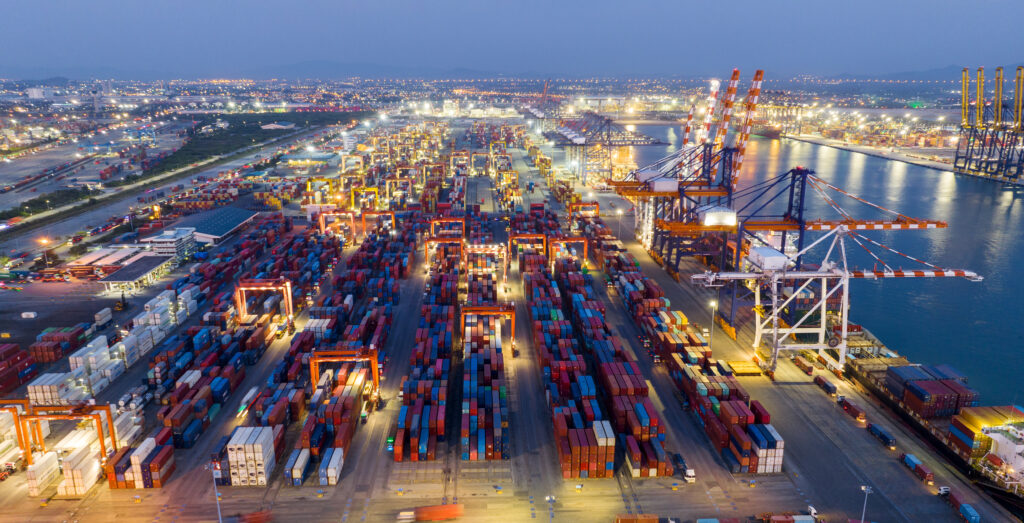As the sun sets over the bustling ports along the East Coast and Gulf Coast, a global trade storm is brewing—one that threatens to disrupt the flow of goods, commerce, and livelihoods. The International Longshoremen’s Association (ILA), which represents around 70,000 dockworkers, is on the edge of a labor dispute with the United States Maritime Alliance (USMX), the representative body for employers at 36 coastal ports. The stakes are high for international shipping, and the clock is ticking on the potential east coast and gulf coast port strike.
The labor contract between the East & Gulf Coast Ports and the ILA is set to expire at the end of September. While negotiations have started, there are big gaps between the two sides. One being wage increases. The ILA has said that they will not renew the existing contract and if a new contract isn’t completed by October 1, they plan to strike. The uncertainty alone is already causing some shippers to diversify their import/export strategy and move more lanes to using west coast ports.
The ports affected by this potential east coast and gulf coast port strike include some of the busiest in the nation. Among them are:
- Port of New York and New Jersey: A vital gateway for international trade, handling millions of containers annually.
- Port of Savannah, Georgia: Known for its deepwater access and strategic location, serving as a critical link in global supply chains.
- Port of Houston: A major hub for energy exports and a gateway to Latin America.
The stakes are high, and the consequences are far-reaching. The mere threat of a strike resonates across the industry. Trade associations, including the National Retail Federation (NRF), are anxious. The possibility of disruptions could negatively impact the economy, with businesses dreading slowdowns or shutdowns during the peak shipping season this fall.
As the clock ticks, the International Longshoremen’s Association and United States Maritime Alliance must seek a middle ground. The possibility of a strike casts a long shadow, with repercussions reaching far beyond the docks. Businesses, consumers, and the entire economy are keeping a vigilant eye on the unfolding situation.
If you have questions or concerns about the future of maritime trade and need alternatives for the ports at-risk, we welcome a conversation! Click below to get in touch with our International Logistics specialists about your port transportation and freight forwarding needs.




